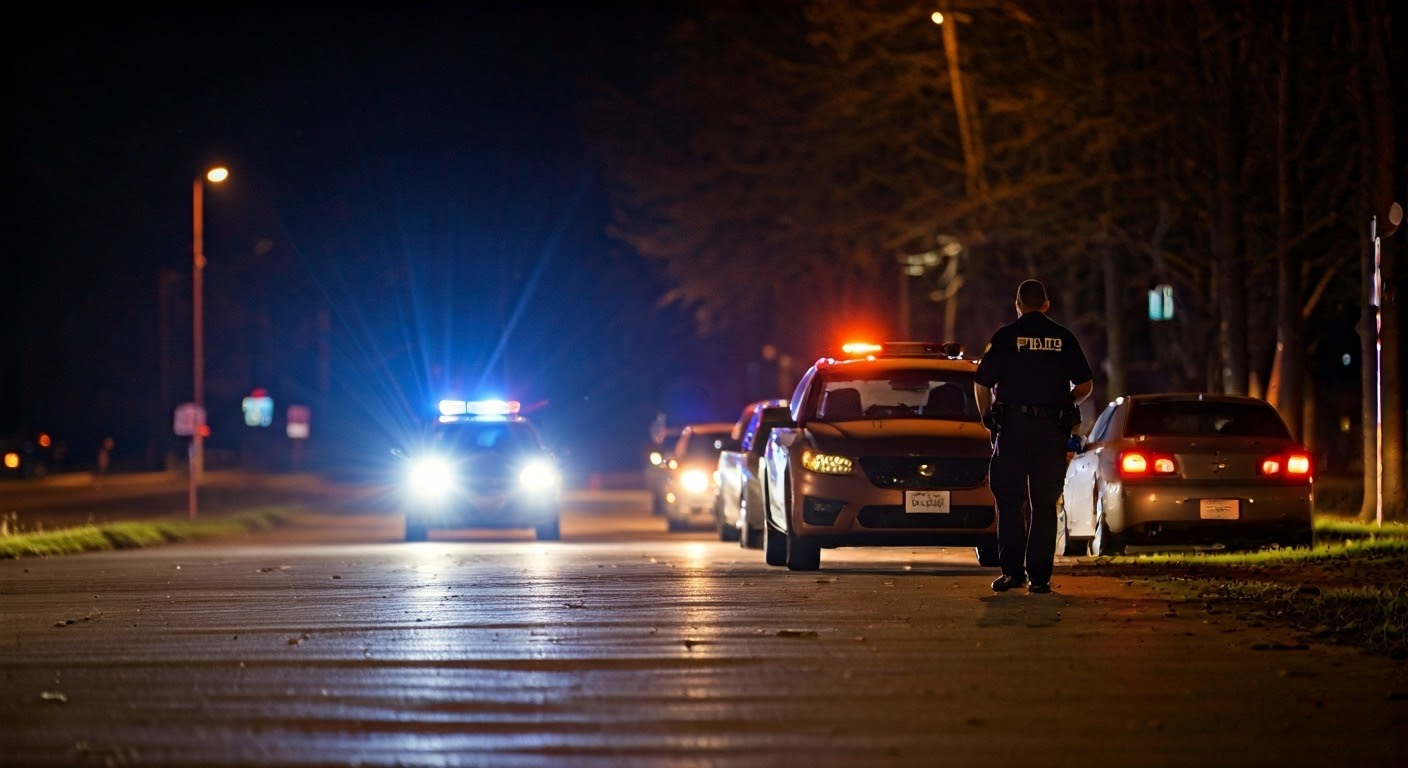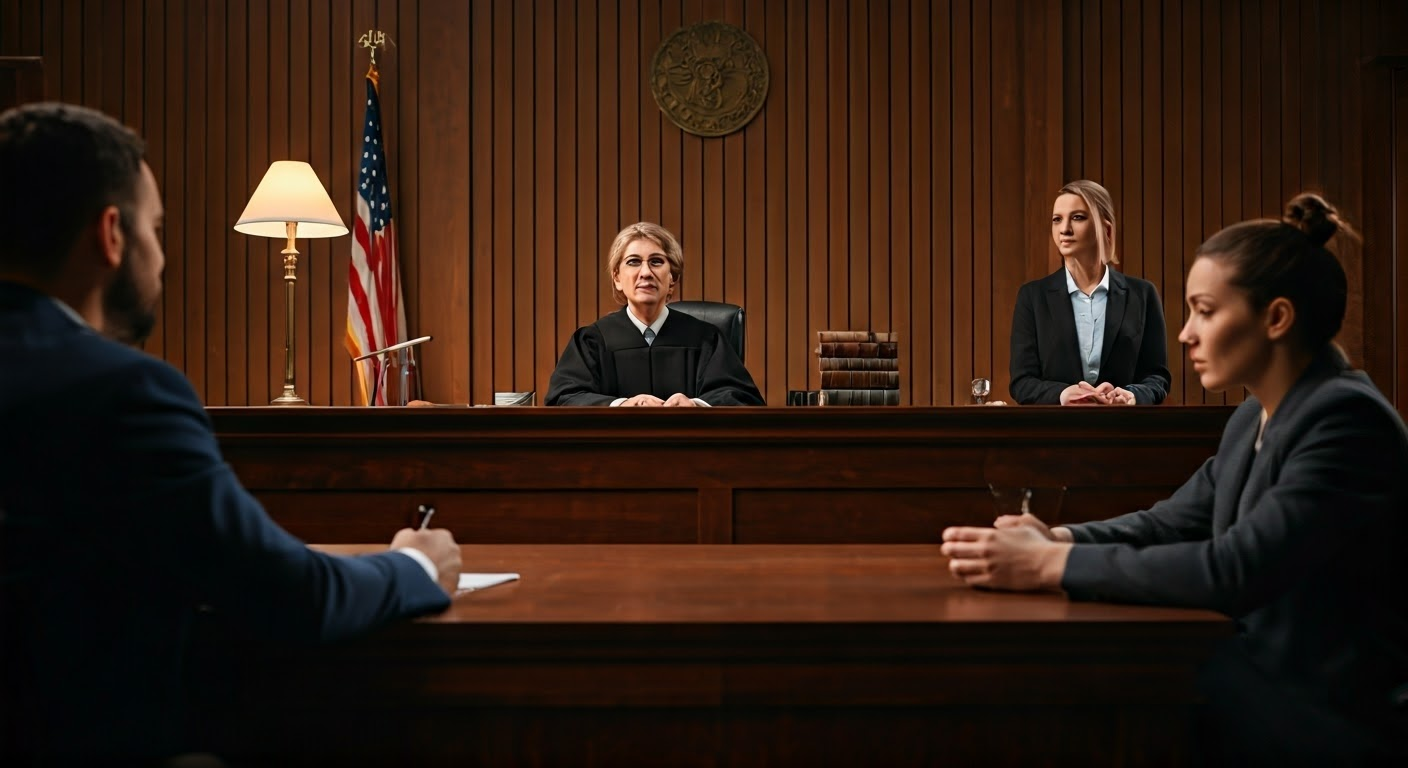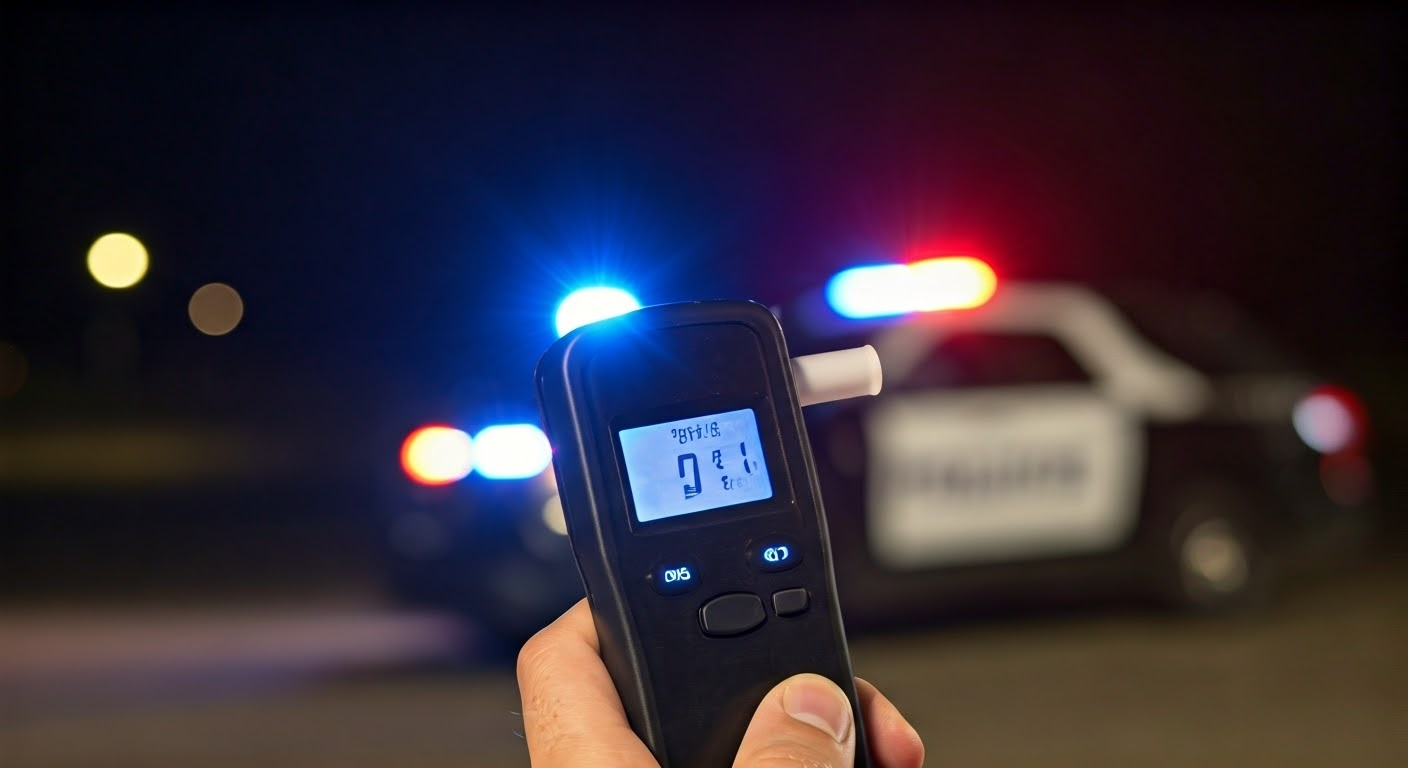Understanding DUI Penalties in Washington State

Key Highlights
- DUI laws in Washington State include both gross misdemeanors and felony DUI charges, with penalties that escalate for repeat offenses or aggravating circumstances.
- First-time DUI convictions carry fines, mandatory jail time, and license suspensions, with penalties increasing based on Blood Alcohol Content (BAC).
- Repeat DUI offenders face significantly harsher punishments, including longer jail sentences and higher fines.
- The state’s mandatory minimum sentencing ensures some penalties are unavoidable, even for lower-level offenses.
- Alternative sentencing programs, like deferred prosecution or substance abuse treatment, provide opportunities for rehabilitation instead of incarceration.
Introduction
Washington State has some of the toughest DUI laws in the country. For anyone charged with a DUI, dealing with the legal system here can be hard and stressful. The laws in this state use strict penalties. These penalties go from taking away your license to possible felony charges. This can happen, especially if there are aggravating circumstances or if you are caught more than one time. It helps to know the penalties linked to DUI charges. This way, you can make better choices for your defense. This blog will show you the types of DUI charges, the legal consequences, and the sentencing options you might get under washington state’s DUI laws.
1. DUI Classifications in Washington State
 In Washington State, a DUI charge usually falls into two groups. These are gross misdemeanors and felony DUIs. What kind of charge you get will depend on things like the number of past offenses you have and the severity of the incident.
In Washington State, a DUI charge usually falls into two groups. These are gross misdemeanors and felony DUIs. What kind of charge you get will depend on things like the number of past offenses you have and the severity of the incident.
Most of the time, a DUI charge is treated as a gross misdemeanor. But if there are aggravating circumstances, it can get worse. Some examples of these are if there are serious injuries, deaths, or if you have had more than one offense. In that case, the charge could become a felony. The difference between a gross misdemeanor and a felony changes the penalties by quite a lot. Now, let’s talk about how misdemeanors and felonies are not the same and how certain situations can affect a DUI charge.
Distinction Between Misdemeanor and Felony DUI
In Washington State, most DUI charges are listed as gross misdemeanors. The state gives these charges when there are no big problems, like an accident or doing it again and again. If you get convicted, you could face jail time, you may have to pay fines, and your driver’s license will also be suspended.
But, if there are aggravating circumstances, the charges can go up to a felony DUI. These factors can include causing serious injury or death, or if you get caught with a minor in the car. Felony DUI charges are much harder on people. They can mean a longer time in prison and higher fines.
If you get a fourth DUI in ten years, that will also be a felony under the law in Washington State. The state has a strict rule for people who keep breaking DUI laws or who are reckless. Knowing the difference between a misdemeanor and a felony DUI can help you get ready for any possible legal trouble from these charges.
How DUI Severity is Determined
The seriousness of a DUI charge in Washington changes for each case. Many things affect it, like your Blood Alcohol Content (BAC), any aggravating circumstances, and if you have any past offenses. If your BAC is 0.15% or higher, the penalties get much harsher, even if this is your first DUI.
Aggravating circumstances, like if someone got hurt, an accident happened, or there were minors in the car, can make your DUI charge worse. For example, if you hurt someone while committing a DUI, you might also be charged with vehicular assault.
If you refuse to take blood tests or breath tests, that choice can make the penalties for your DUI charge stricter. These tests help decide your BAC level, so refusing them can lead to higher mandatory consequences. Now, let’s look at what people with a first DUI might go through.
2. First-Time DUI Penalties in Washington
Facing your first DUI charge in Washington can be scary. Even for a first offense, you can get strict penalties. These can include jail time, a license suspension, and large fines. How severe these penalties are will depend on your BAC at the time of arrest and if there were any extra problems or risks involved.
It is important to know what a first DUI conviction means for you. In the next sections, we will talk about the exact legal consequences and the mandatory minimum penalties you can get for a first-time offense.
Legal Consequences for a First-Time Offender
A first DUI in Washington can lead to some tough results. If your BAC is under 0.15%, you will face minimum DUI penalties like at least 24 hours in jail, starting fines of $990.50, and a 90-day license suspension. These penalties get worse if there are any aggravating circumstances.
If your BAC is over 0.15%, the minimum penalties go up. You can get at least 48 hours of jail time or house arrest. Fines start at $1,245.50, and you could lose your license for a year. If you refuse the breath test, the penalties will get even stricter.
The court also orders alcohol or drug education programs for anyone with a first DUI. These can help find the reasons behind your substance use issues. Even if this is your first DUI offense, the effects can last a long time. It can also hurt your chances to get a job or raise your insurance rates in the future.
Mandatory Minimum Sentences and Fines
Washington has strict rules on mandatory minimum penalties. This means that judges cannot lower the punishment, even for a first-time DUI. They must follow the law as written. The criminal penalties someone gets will depend on what happened during the DUI.
If your BAC is under 0.15%, you must get at least 24 hours in jail or house arrest. The court will also give you a $990.50 fine. Your driver’s license will be taken away for 90 days. For one year, you must use an ignition interlock device in your car.
If your BAC is 0.15% or more, all the penalties are more serious. You will go to jail for at least 48 hours. The fine starts at $1,245.50 or even more. You will lose your license for one year. The court may also order electronic home monitoring. This shows how big these criminal penalties are. Even just one DUI can have serious results. People who get caught again will face even harsher rules.
3. Consequences for Repeat DUI Offenders
 Second DUI offenses and any after that come with much tougher penalties in Washington. The fines get higher, and you may face more jail time. Every time you are convicted again, the sentence will be longer and more strict. If you get two or more DUIs within seven years, you could lose your license for many years.
Second DUI offenses and any after that come with much tougher penalties in Washington. The fines get higher, and you may face more jail time. Every time you are convicted again, the sentence will be longer and more strict. If you get two or more DUIs within seven years, you could lose your license for many years.
The state increases these penalties to stop people from making the same mistake more than once. This means if you break this law again, you will see heavier punishments. Let’s talk about what can happen when you get a second DUI. We will also look at how a third or even a fourth DUI can lead to felony DUI charges. These felony DUI offenses are very serious and can change your whole life.
Penalties for a Second DUI Offense
A second DUI in seven years in Washington will bring much tougher penalties. If your BAC is below 0.15%, you will spend at least 30 days in jail. You will also get 60 days of electronic home monitoring. Fines will start at $1,245.50. There is also a two-year loss of your driver’s license.
If your BAC is 0.15% or higher, you face at least 45 days in jail. You will also have 90 days of home confinement and fines beginning at $1,670.50. If you refuse the BAC test, your license can be taken away for three years.
A second conviction means you have to do an alcohol or drug treatment program. The state made these tough laws to stop people from doing it again. The penalties get worse every time you do this because it shows you do not care about the safety of others.
Increased Penalties for Third and Subsequent Offenses
A third DUI offense in Washington brings some of the toughest penalties. If your BAC is under 0.15%, you have to spend at least 90 days in jail. There is also 120 days of electronic home monitoring. Fines will start at $2,095.50. You also get a license suspension for three years.
If your BAC is above 0.15% or you say no to the test, you will be given 120 days in jail and 150 days of home monitoring. The fines start at $2,945.50. You will also face a license revocation for four years.
If this is your fourth DUI in ten years, it becomes a felony DUI right away. You could spend years in state prison and get fines that could go as high as $20,000. It can also hurt your job chances for a long time. The next section will show how BAC levels can change these serious outcomes.
4. Role of Blood Alcohol Content (BAC) in DUI Cases
Blood alcohol content (BAC) has a big impact in DUI cases. In Washington State, if you have a BAC of 0.08% or more, you can get a DUI charge. This brings mandatory minimum penalties. One of these is license suspension. You may also face jail time. Some problems, like having old DUI charges, are called aggravating circumstances. If that happens, the severity of the incident can go up. This may lead to felony DUI charges and harsher punishments. Knowing how your BAC can change your case is important. It helps you understand DUI laws in Washington State, and may help you handle the results and lessen the damage.
Implications of BAC Levels Below 0.15%
If your BAC is below 0.15%, the penalties you face will not be as strict, but they are still serious. The mandatory minimum is 24 hours in jail or 15 days of electronic home monitoring. You will have to pay fines between $990.50 and $5,000. Your driver’s license will be taken away for 90 days.
Sometimes, if it is your first DUI and your BAC is low, the charge might be lowered to reckless or negligent driving instead of getting a full DUI conviction. But, if there are aggravating circumstances—like if you cause an accident—the penalties can get worse even with a lower BAC.
If you are under probation or have a special license, such as a commercial driver’s license, things get tougher for you, even with a low BAC. You must follow any court-mandated programs and not get in trouble again, since this will help lower your chances of facing more long-term problems.
Consequences of BAC Levels of 0.15% or Above
If your BAC reading is 0.15% or higher, you will face stronger charges under Washington State law. For someone caught for the first time, this means spending at least 48 hours in jail, paying fines from $1,245.50 to $5,000, and losing your driver’s license for up to a year.
People who break the law again, and still have a high BAC, face even tougher penalties. For example, someone who is caught a second time will spend at least 45 days in jail and have 90 days of house arrest. Fines for a second offense start at $1,670.50, and their license suspension goes up to three years.
The reason for these stricter penalties in dui cases is because higher BAC levels are more dangerous. The courts in Washington State want to stop this risky behavior and keep the public safe. For some offenders, there may be programs to help with rehabilitation instead of strict punishment. These alternative sentences will be explained next.
5. Alternative Sentencing and DUI Diversion Programs
Getting a DUI charge in Washington State does not always mean you will spend time in jail. There are other options, like deferred prosecution and DUI diversion programs. These give people a chance to get help for substance abuse problems. The goal is to help someone stop repeat offenses, not just punish them.
To join these programs, you must meet strict rules. These include things like long-term treatment plans. In this text, we will look at how these programs work and what benefits they can give to people who qualify.
Overview of Diversion Programs in Washington
Diversion programs in Washington, like the Deferred Prosecution Program, are made to help people get better instead of punishing them for a DUI conviction. To get into these programs, you must admit to having a drinking problem or a problem with drugs. You also need to take part in a treatment program that the court watches over for two years.
This is a one-time chance for people with a DUI conviction to change things for the better. If you do what the court tells you to do, you may not get a DUI conviction on your record. You have to stay away from alcohol, go to all treatment sessions, and not get in trouble with the law again while in the program. If you follow every rule, your charge may get dropped, but your DUI will always show up on your record.
Some counties have special DUI courts. These give extra help, like strong supervision and regular alcohol or drug tests. If you get through it all the right way, you might get a lighter sentence or have your case dropped. The big idea here is to help people recover rather than just send them to jail for a long time.
Eligibility and Benefits of Alternative Sentencing
Not everyone qualifies for alternative sentencing in Washington. Eligibility criteria often include first-time offender status, diagnosed substance abuse issues, and agreement to adhere to strict court conditions such as abstinence and treatment.
| Eligibility Criteria | Benefits of Alternative Sentencing |
|---|---|
| First-time DUI without aggravating factors | Avoid jail time and secure the opportunity for rehabilitation |
| Proven substance dependency | Dismissal of charges upon completing the program |
| Signed admission to treatment requirements | Reduce the long-term impact on employment, housing, and driving privileges |
Alternative sentencing ensures accountability through structured programs, while offering participants the tools to rebuild their lives. Proper legal representation helps assess your eligibility and navigate the program requirements.
6. Conclusion
To sum up, it is important for people in Washington state to know about DUI penalties. This matters if you get your first DUI charge or if you have had one before. The results can change your life in a big way. You could have to pay fines or even face jail time. Knowing the difference between a misdemeanor and a felony DUI, and how BAC levels affect things, can help you understand what you are up against.
Some people may also look into other ways to handle these charges, like alternative sentencing or diversion programs. These can give you a chance to avoid stricter punishments. If you are dealing with a DUI charge, you should talk with a legal expert. It will help you know your choices and protect your rights.
Can DUI Charges Be Removed?
Even if your DUI case involves aggravating factors, the attorneys at Ticket Cutter can still fight to reduce your charges and pursue the best possible result.
DUI enhancements are not minor details—they’re serious allegations that can increase penalties significantly. These may include high blood alcohol content, prior offenses, minors in the vehicle, or an accident. Any of these can lead to longer license suspensions, higher fines, mandatory jail time, and other harsh consequences.
At Ticket Cutter, we focus exclusively on defending drivers across Washington State. Our legal team understands how stressful enhanced DUI charges can be—and we know how to build strong, strategic defenses to challenge them. We help you understand your options, fight for reduced penalties, and work to protect your driving record, freedom, and future.
Don’t wait. The sooner you act, the stronger your defense. Request a free consultation now and get a clear path forward.
Call Now or USE contact form a for same-day response:









Thanks to their expertise, the fines were successfully dismissed, and I felt fully supported throughout the process. I highly recommend this attorney to anyone looking for reliable, knowledgeable, and truly dedicated legal help.

